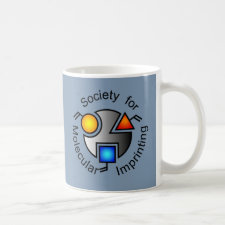
Authors: Zhang YF, Ren JQ, Yang ZT, Ma YR, Zhang QY, Zhang BL
Article Title: Fabrication of Surface-Imprinted Magnetic Wrinkled Microspheres and Their Specific Adsorption of BSA.
Publication date: 2021
Journal: Industrial & Engineering Chemistry Research
Volume: 60
Issue: (30)
Page numbers: 11277-11288.
DOI: 10.1021/acs.iecr.1c01803
Abstract: Increasing the external surface area of carriers has great significance in the production of protein-imprinted polymers because it can simultaneously increase the mass-transfer rate and adsorption capacity. In this paper, magnetic composite microspheres with a wrinkled surface (MWMS) are fabricated by the combination of controlled polymerization and interfacial polymerization. Their high surface area and excellent magnetic properties make them an advantageous carrier. The surface of MWMS is coated with polydopamine that served as an imprinting layer via oxidative autopolymerization of dopamine in alkaline solution, to obtain bovine serum albumin (BSA) surface-imprinted MWMS (MWMS@MIPs). MWMS@MIPs can adsorb 146.2 mg/g BSA in 60 min, and the imprinting factor (IF) is 4.36. The adsorption process conforms to the Langmuir adsorption model revealing the monolayer adsorption. The calculated maximum saturated adsorption amount is close to the measured value of 206.61 mg/g. More importantly, BSA can be specifically discriminated from the mixed protein and real samples using MWMS@MIPs. The regeneration experiment of eight cycles illustrates that the adsorption capacity, IF, and magnetic properties of MWMS@MIPs basically remain unchanged. MWMS@MIPs are excellent and promising materials for separating proteins
Template and target information: protein, bovine serum albumin, BSA



Join the Society for Molecular Imprinting

New items RSS feed
Sign-up for e-mail updates:
Choose between receiving an occasional newsletter or more frequent e-mail alerts.
Click here to go to the sign-up page.
Is your name elemental or peptidic? Enter your name and find out by clicking either of the buttons below!
Other products you may like:
 MIPdatabase
MIPdatabase









